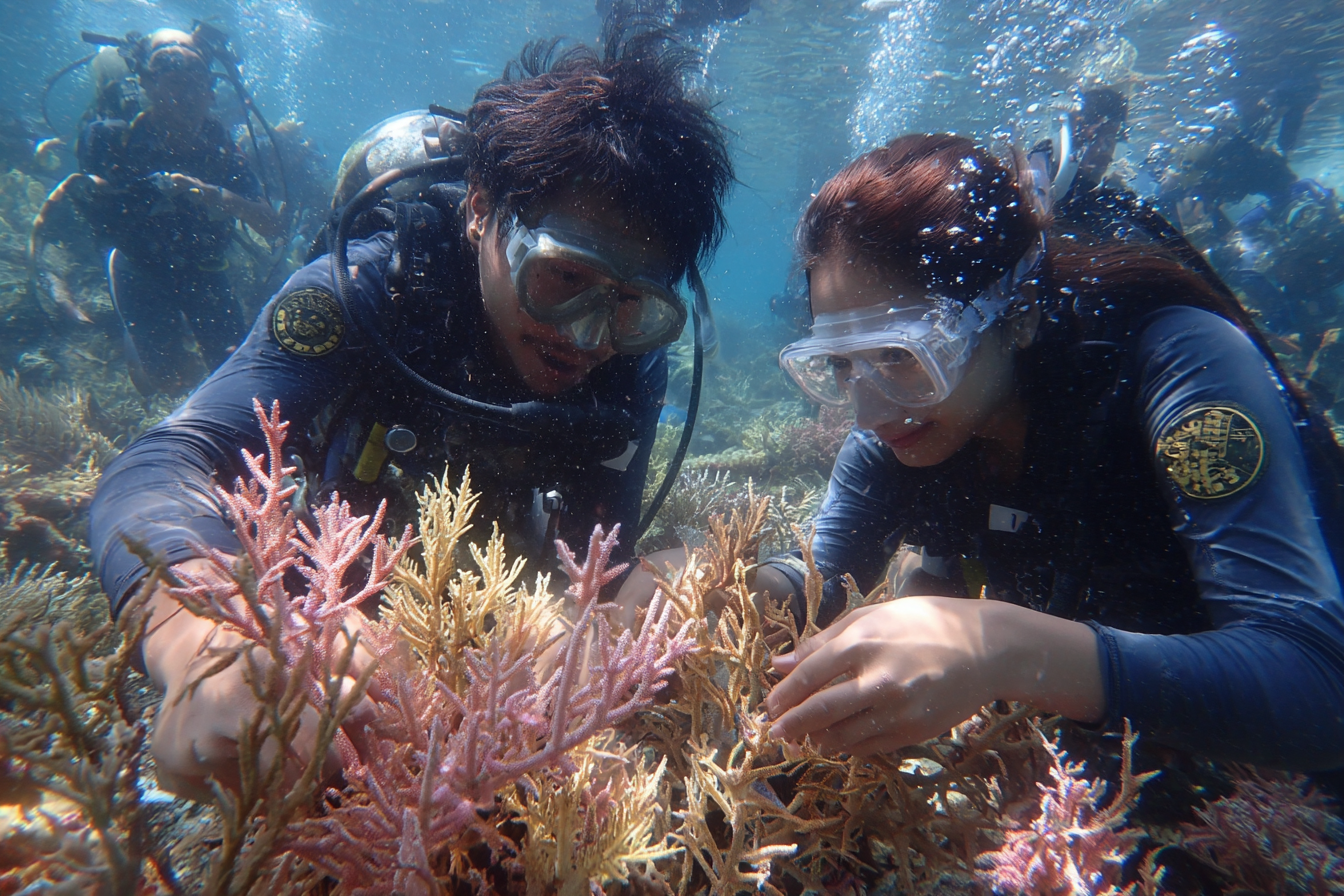Nestled in the Philippines, Apo Island is a small volcanic island known for its incredible marine biodiversity, vibrant coral reefs, and lush landscapes. As travelers increasingly seek meaningful ways to explore natural wonders without leaving a negative impact, eco-tourism has become a vital approach to experiencing this paradise. Apo Island offers visitors the chance to immerse themselves in nature, actively contribute to conservation, and support the local community. Let’s dive into how eco-tourism on Apo Island presents a unique and sustainable way to travel.
What is Eco-Tourism and Why It Matters Here
Eco-tourism refers to responsible travel to natural areas that conserves the environment, sustains the well-being of local people, and involves interpretation and education. Unlike traditional tourism, which can sometimes inadvertently harm ecosystems and disrupt local cultures, eco-tourism emphasizes minimal environmental impact and supports preservation efforts.
Apo Island is a prime candidate for eco-tourism due to its delicate marine ecosystem and the community’s commitment to protecting it. The island is home to a highly protected marine sanctuary that draws divers and snorkelers fascinated by its coral gardens and diverse marine life. Fostering eco-tourism here ensures that the natural beauty remains intact for generations to come, and it also empowers the fishermen and villagers who serve as stewards of the island’s environment.
Unique Eco-Tourism Activities on Apo Island
Visitors to Apo Island can engage in a variety of eco-tourism activities that highlight the island’s natural wonders and promote sustainability:
- Snorkeling and Diving in the Marine Sanctuary: Apo Island’s marine sanctuary is famous worldwide for its healthy coral reefs and rich underwater biodiversity. Snorkeling or diving here allows you to observe sea turtles, colorful reef fish, and corals in their natural environment while adhering to sanctuary rules that protect the ecosystem.
- Guided Nature Walks: Wander the island trails with local guides who share knowledge about native plants, wildlife, and Apo Island’s volcanic origins. This immersive experience fosters a deeper appreciation for the island’s ecological value.
- Beach Clean-up Activities: Some tours incorporate community-led beach clean-ups, inviting guests to contribute to keeping the island pristine.
- Night-time Eco-Tours: Explore the island after dusk to witness unique nocturnal creatures, including sea turtles nesting seasons, with expert guidance to minimize disturbance.
Coral Reef Restoration Involvement
One of Apo Island’s most inspiring eco-tourism initiatives is its coral reef restoration program. Coral reefs face multiple threats worldwide, and Apo Island’s rehabilitation efforts showcase how tourism can play a positive part in conservation.
Tourists can join workshops or guided activities where they help plant coral fragments to rehabilitate damaged reef areas. These hands-on experiences educate visitors about coral biology and the importance of reef health while directly aiding the ecosystem’s recovery. Projects are managed by trained marine biologists and local conservation groups, ensuring best practices and safety for both participants and marine life.
By getting involved, travelers not only enrich their visit but also become ambassadors for coral conservation, spreading awareness about challenges reefs face globally.
Local Community Initiatives Driving Sustainability
The success of eco-tourism on Apo Island is deeply intertwined with community participation. The island’s residents have embraced sustainable practices that protect their natural surroundings and improve livelihoods, making tourism a force for good.
Several community initiatives stand out:
- Marine Sanctuary Management: Local fishermen voluntarily enforce sanctuary regulations, such as no-fishing zones, which have allowed fish populations and coral cover to rebound.
- Homestay and Local Guides: Many families offer homestays that provide authentic cultural experiences and additional income. Hiring local guides supports job creation and ensures tourism benefits remain on the island.
- Waste Management Programs: The community organizes waste segregation and recycling initiatives to reduce pollution and maintain the island’s pristine condition.
Visiting Apo Island through community-backed programs means your travel dollars help sustain these vital projects.
Guidelines for Responsible Tourist Behavior
To preserve Apo Island’s unique ecosystem, responsible behavior is essential. Eco-tourists should keep these guidelines in mind:
- Respect the Marine Sanctuary Rules: Avoid touching corals or marine life, don’t collect shells or coral fragments, and follow designated dive/snorkel paths.
- Minimize Plastics and Waste: Reduce single-use plastics by bringing reusable water bottles and bags, and dispose of trash properly.
- Use Reef-Safe Sunscreen: Some sunscreens contain chemicals harmful to corals; choose biodegradable, reef-safe alternatives instead.
- Support Local Businesses: Purchase crafts or meals from locals to boost the economy and encourage sustainable livelihoods.
- Follow Guide Instructions: Respect advice from local guides and conservation officers, as they know the best practices to protect the environment.
How Eco-Tourism Benefits Conservation Efforts
Eco-tourism provides a sustainable financial model for conservation by linking environmental health with economic incentives. Apo Island’s marine sanctuary is self-sustaining partly because its thriving ecosystem attracts tourists willing to pay entrance fees or participate in tours managed for conservation purposes.
These funds support reef protection, coral restoration projects, and community development programs. Additionally, eco-tourism raises awareness about environmental challenges, helping build a global network of advocates and environmental stewards.
By traveling responsibly here, visitors help create a positive feedback loop where environmental protection and community well-being reinforce each other.
Tips to Choose Eco-Friendly Operators
Choosing the right tour operator is key to ensuring your Apo Island experience aligns with eco-tourism principles. Here’s how to find responsible providers:
- Research Certifications and Awards: Look for operators certified by reputable eco-tourism or sustainability organizations.
- Check Their Environmental Policies: Responsible operators will have clear guidelines on waste reduction, wildlife interaction, and community support.
- Support Locally Owned Businesses: Prioritize operators owned or run by Apo Island residents or nearby communities.
- Read Reviews and Testimonials: Feedback from previous travelers can reveal an operator’s commitment to sustainability and quality experiences.
- Ask About Community Involvement: Choose tours that contribute to local conservation or community projects.
By making informed choices, you help strengthen the local eco-tourism industry and its positive impact.
Traveling Thoughtfully on Apo Island
Visiting Apo Island through the lens of eco-tourism transforms a simple beach holiday into a meaningful journey. This remarkable island showcases how tourism and conservation can intertwine to protect natural treasures while supporting local communities. Whether you are snorkeling alongside gentle sea turtles, helping restore coral reefs, or enjoying a meal shared with island residents, every action contributes to a sustainable future.
By committing to responsible travel practices and choosing eco-friendly operators, you not only savor Apo Island’s stunning beauty but also ensure that paradise remains vibrant and alive. Your thoughtful travel choices today become the legacy of tomorrow’s Apo Island.







